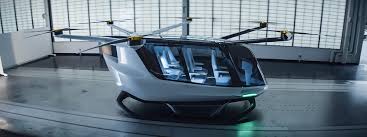
Breaking News
 Networks Versus Hierarchies in Minneapolis' Struggle Against ICE
Networks Versus Hierarchies in Minneapolis' Struggle Against ICE
 Billionaire Reid Hoffman, Who Bankrolled the E. Jean Carroll Lawsuit Against Trump,...
Billionaire Reid Hoffman, Who Bankrolled the E. Jean Carroll Lawsuit Against Trump,...
 Hybrid jet engines work to excel where pure-electric jets fail
Hybrid jet engines work to excel where pure-electric jets fail
 This Could Completely Change the Way You Grade
This Could Completely Change the Way You Grade
Top Tech News
 Critical Linux Warning: 800,000 Devices Are EXPOSED
Critical Linux Warning: 800,000 Devices Are EXPOSED
 'Brave New World': IVF Company's Eugenics Tool Lets Couples Pick 'Best' Baby, Di
'Brave New World': IVF Company's Eugenics Tool Lets Couples Pick 'Best' Baby, Di
 The smartphone just fired a warning shot at the camera industry.
The smartphone just fired a warning shot at the camera industry.
 A revolutionary breakthrough in dental science is changing how we fight tooth decay
A revolutionary breakthrough in dental science is changing how we fight tooth decay
 Docan Energy "Panda": 32kWh for $2,530!
Docan Energy "Panda": 32kWh for $2,530!
 Rugged phone with multi-day battery life doubles as a 1080p projector
Rugged phone with multi-day battery life doubles as a 1080p projector
 4 Sisters Invent Electric Tractor with Mom and Dad and it's Selling in 5 Countries
4 Sisters Invent Electric Tractor with Mom and Dad and it's Selling in 5 Countries
 Lab–grown LIFE takes a major step forward – as scientists use AI to create a virus never seen be
Lab–grown LIFE takes a major step forward – as scientists use AI to create a virus never seen be
 New Electric 'Donut Motor' Makes 856 HP but Weighs Just 88 Pounds
New Electric 'Donut Motor' Makes 856 HP but Weighs Just 88 Pounds
 Donut Lab Says It Cracked Solid-State Batteries. Experts Have Questions.
Donut Lab Says It Cracked Solid-State Batteries. Experts Have Questions.
Skai hydrogen-powered eVTOL air taxi boasts enormous 400-mile

Alaka'i Technologies' Skai machine has a range of up to four hours/400 mi (640 km) and a five-passenger capacity.
Hydrogen is a difficult fuel to deal with in an automotive context, but it might just be the shot in the arm that the electric aviation industry needs to get VTOL multicopter air taxis up and running. Current lithium battery technology offers poor energy density, which severely limits the range figures of current e-VTOL projects. But hydrogen offers up to 10 times the energy density, as well as gasoline-quick refueling, if you can deal with the inefficiencies of producing, transporting and storing it. And those difficulties can be better managed in a centralized aviation model that doesn't need to roll out across the entire road network.
Thus, Massachusetts-based Alaka'i Technologies has spent the last four years beavering away at building a hydrogen-powered air taxi, which it launched today in California. According to an interview with SoCalTech, the company is operating under the funding of a sole investor, who has carried it through design, development, prototyping and is now footing the bill for FAA certification, which Alaka'i CEO Steve Hanvey says he believes should be possible before the end of 2020 due to the simplicity of the airframe.



